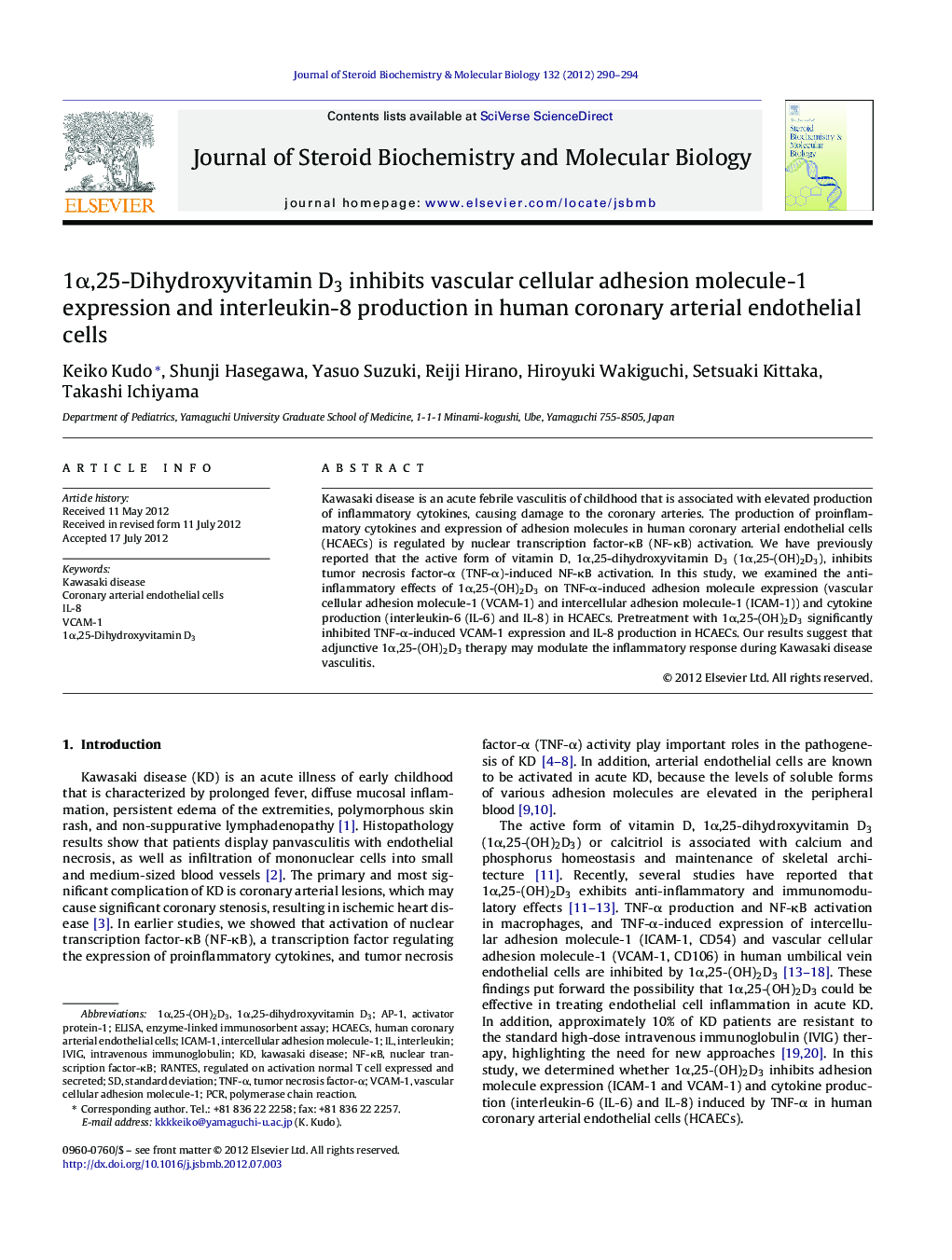| Article ID | Journal | Published Year | Pages | File Type |
|---|---|---|---|---|
| 1991612 | The Journal of Steroid Biochemistry and Molecular Biology | 2012 | 5 Pages |
Kawasaki disease is an acute febrile vasculitis of childhood that is associated with elevated production of inflammatory cytokines, causing damage to the coronary arteries. The production of proinflammatory cytokines and expression of adhesion molecules in human coronary arterial endothelial cells (HCAECs) is regulated by nuclear transcription factor-κB (NF-κB) activation. We have previously reported that the active form of vitamin D, 1α,25-dihydroxyvitamin D3 (1α,25-(OH)2D3), inhibits tumor necrosis factor-α (TNF-α)-induced NF-κB activation. In this study, we examined the anti-inflammatory effects of 1α,25-(OH)2D3 on TNF-α-induced adhesion molecule expression (vascular cellular adhesion molecule-1 (VCAM-1) and intercellular adhesion molecule-1 (ICAM-1)) and cytokine production (interleukin-6 (IL-6) and IL-8) in HCAECs. Pretreatment with 1α,25-(OH)2D3 significantly inhibited TNF-α-induced VCAM-1 expression and IL-8 production in HCAECs. Our results suggest that adjunctive 1α,25-(OH)2D3 therapy may modulate the inflammatory response during Kawasaki disease vasculitis.
► In Kawasaki disease, inflammatory cytokine levels are elevated. ► TNF-α-induced NF-κB activation is inhibited by 1α,25-(OH)2D3. ► Pretreating HCAECs with 1α,25-(OH)2D3 inhibited TNF-α-induced VCAM-1 expression. ► This pretreatment also inhibited IL-8 production in HCAECs. ► 1α,25-(OH)2D3 therapy may modulate inflammatory response during Kawasaki disease.
